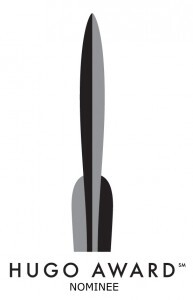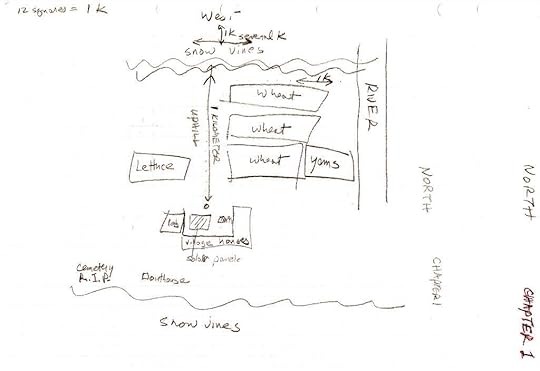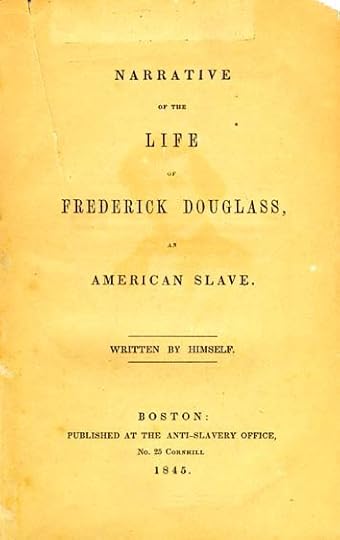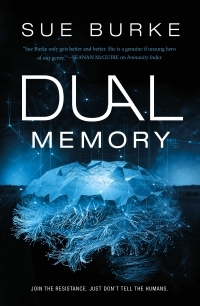Sue Burke's Blog, page 12
October 4, 2023
My votes for the 2023 Hugo Best Short Story

This year the Worldcon will be held in Chengdu, China, and the 2023 Hugo Awards, the Lodestar Award, and the Astounding Award will be presented on Saturday evening, October 21, at a formal ceremony at the Chengdu Worldcon.
Although I won’t be attending in person, I am a Worldcon member and get to vote for the awards. Members also make the nominations, and the works or individuals with the most nominations become the finalists.
Because the convention is in China, a number of Chinese works are on the ballot, including three in the short story category. I was looking forward to reading them, and I wasn’t disappointed. The voting is by ranked choice, and here’s my ranking:
6. “On the Razor’s Edge” by Jiang Bo (Science Fiction World, January 2022) – Chinese astronauts learn that American astronauts must be rescued from their space station — but there’s a lot of animosity between the two governments. Will they be rescued? Can they? This is a straight-up adventure story.
5. “D.I.Y.”, by John Wiswell (Tor.com, August 2022) – Two young self-taught magicians try to end a drought and wind up facing corporate greed. As usual with John Wiswell, there’s kindness, hope, humor, and a touch of sharp-eyed irony and cynicism. The two young magicians slowly dare to show their vulnerability toward each other.
4. “The White Cliff” by Lu Ban (Science Fiction World, May 2022) – An experiment comes to a thoughtful and heartwarming end. It’s hard to say more without spoilers.
3. “Rabbit Test” by Samantha Mills (Uncanny Magazine, November-December 2022) – The entire history of abortion is told as dystopia — which it is (I’ve been living it my whole life). This story made me angry, but not at the author. It was my choice for the Nebula Award, and it won, along with the Theodore Sturgeon Memorial Award, and I won’t complain if it or any of the stories on the ballot wins the Hugo, but I decided to lean toward works from the host country in my top votes because translated works don’t get on the ballot often.
2. “Zhurong on Mars” by Regina Kanyu Wang (Frontiers, September 2022) – Humans have abandoned Mars to machines, specifically a machine named Zhurong after the Chinese god of fire, and soon Zhurong discovers secrets. The story combines Chinese creation myths and the trajectory of the development of life on Earth in a way that feels satisfying.
1. “Resurrection” by Ren Qing, translated by Blake Stone-Banks (Future Fiction/Science Fiction World, December 2022) – A soldier is resurrected after death on the battlefield and sent home to visit his mother in their countryside village. Emotional depth and sharp characterization make this story stand out for me.
September 27, 2023
Maps as a tool in fiction
When I began writing Dual Memory, I knew I wanted it to take place on an island in the north Atlantic Ocean. Then I had to figure out the particulars. Luckily, I discovered a real island that had some of the necessary characteristics: Grímsey, the northernmost inhabited location of Iceland.
It’s about the right size, on the Arctic Circle, and has lots of puffins. Unlike the island in my story, its population is only about 70 people, but I imagined it could hold 20,000 with enough apartment buildings. I got a map from an Iceland tourist site and from Google and used them to help me keep the details right: the docks were here, a park was there, and the hospital was in the middle.
The novel Immunity Index takes place in real places, and maps of those places, as well as visits, let me try to recreate a setting that felt “real.”

For the novel Semiosis, I made my own maps. Again, they helped keep me oriented. As characters moved around, if they looked in a certain direction, what would they see? If they went from point A to point B, what would they pass along the way? (Readers will notice if you’re inconsistent.)

These are just some of the things maps can do for an author. They don’t have to be good enough to include in the final publication. They can be incomplete, simply showing the relative locations of important things in the story.
If the characters are going to make a journey, the author might benefit from a map, but it might not be the same map that the characters use. If the story involves a treasure map, having an accurate map to refer to, however crudely drawn, will help the author guide the characters through the countryside — and allow the characters to complain about how misleading their map is. Only the author knows how cruelly lost they are.
Much like maps, another tool for the author can be the plan of a building, space ship, or other physical setting, such as the circles of hell, if the characters have the ill fortune to find themselves there.
The act of drawing a map can be a prompt for the author, discovering details and relationships that inspire new depth to the storytelling. What has to exist in that kind of location? What cool things might be there? Where is a character’s favorite place? Where are things that a character would avoid, and why? Is there a good spot for birdwatching, and what does that say about the local ecology?
September 20, 2023
Two poets: José Martí and Antonio Machado
Two poets, one from Cuba, one from Spain, wrote at different times and in different styles, yet they are linked by history and the Spanish language. José Martí fought and died in the war for Cuban independence from Spain. Spain’s defeat in that war led to soul-searching among writers in Spain, and Antonio Machado emerged as one of its leading voices; he died during the Spanish Civil War.
Here are my translations of some of their works.
***
José Martí (Cuba, 1853 -1895) may be best-known, if unrecognized, for the words to the song “Guantanamera.” They come from Versos sencillos (Simple Verses), his last book of poetry, published in 1891. The first of the thirty-eight sets of verses begins: “Yo soy un hombre sincero…” (I am a sincere man…) The song was popularized by folk singers in the United States in the 1960s.
In the prologue of that book, he speaks of the “horror” of the domination of the Spanish Empire over Cuba. He had long been active in the nationalist cause. In 1882 he founded the Cuban Revolutionary Party while in exile in New York. The war of Cuban independence began on February 24, 1895, and Martí returned to Cuba in April. He was killed in the Battle of Dos Rios on May 19, 1895, and is now honored in Cuba as a hero.
He said: “Poetry must be rooted in the land and based on real events.” His Versos sencillos echo the style of popular songs and foresee the struggle of his beloved homeland. I have tried to translate them into lyrics that could be set to music.
José Martí, from Versos Sencillos (Simple Verses), 1891
XXIII
Yo quiero salir del mundo
Por la puerta natural:
En un carro de hojas verdes
A morir me han de llevar.
.
No me pongan en lo oscuro
A morir como un traidor;
Yo soy bueno, y como bueno
Moriré de cara al Sol!
.
I want to leave this world
By the gate into nature:
In a cart of green leaves
They must carry me home.
.
May they not let me die
As a traitor in darkness;
I am good, I am right
To die facing the Sun!
.
XXVII
El enemigo brutal
Nos pone fuego a la casa;
El sable la calle arrasa,
A la luna tropical.
.
The enemy brutes
Set our home ablaze;
In the street their swords raze,
Under tropical moon.
.
Pocos salieron ileso
Del sable del español;
La calle, al salir el sol,
Era un reguero de sesos.
.
To escape was in vain
From Spaniard and sword;
At sunrise the street poured
With shed blood and slashed brains
.
Pasa, entre balas, un coche:
Entran, llorando, a una muerta;
Llama una mano a la puerta
En lo negro de la noche.
.
A car evades bullets:
They strike as death wails;
A hand knocks at the doorway
In dark night as a threat.
.
No hay bala que no taladre
El portón; y la mujer
Que llama, me ha dado el ser;
Me viene a buscar mi madre.
.
Every bullet hits home;
The woman at that door
Gave me my life and more;
My mother to me comes.
.
A la boca de la muerte,
Los valientes habaneros
Se quitaron los sombreros
Ante la matrona fuerte.
.
At the call of the grave,
Havana’s valiant men
Remove their hats and bend
Before the matron most brave.
.
Y después que nos besamos
Como dos locos, me dijo:
“Vamos pronto, vamos, hijo;
La luna está sola: vamos.”
.
And after we greet
Both mad with love, she said:
“Let us go, son, ahead,
And the lonely moon meet.”
***
Antonio Machado (Spain, 1875 -1939) is the great poet of Spain’s “Generation of ’98.” Spain was defeated and humiliated in the Spanish-American War in 1898. A disparate group of writers rebelled against the moral, political, and social crisis by creating an intellectual regeneration and a modernization in literature.
Machado synthesized popular wisdom, essential questions of life, and philosophic contemplation in his poetry. His life was often marked with personal tragedy and frustration. He enthusiastically supported the Second Spanish Republic in 1931, but he was forced into exile when its government fell to Fascists in the Spanish Civil War. As he fled, his health deteriorated. He died just over the border in France in 1939. He is still an oft-quoted poet in Spain.
Antonio Machado, from Proverbios y cantares (Proverbs and Songs), 1917
Hoy es siempre todavía.
Today is ever forever.
–
¿Siglo nuevo? ¿Todavía
llamea la misma fragua?
¿Corre todavía el agua
por el cauce que tenía?
.
A new century? Does
the same forge still burn?
Does the water still churn
through its old riverbed?
–
¿Sabes, cuando el agua suena,
si es agua de cumbre o valle,
de plaza, jardín o huerta?
.
When you hear rain fall, do you know,
is it water from summit or valley,
plaza, garden or orchard?
–
Buena es el agua y la sed;
buena es la sombra y el sol;
la miel de flor de romero,
la miel de campo sin flor.
.
Good is water and thirst;
good is shade and sun;
honey from rosemary flower,
honey from flowerless fields.
–
¿Para qué llamar caminos
a los surcos del azar?…
Todo el camina anda
como Jesús, sobre el mar.
.
Why call roads
the paths made by destiny?…
All travelers go
like Jesus, over the sea.
September 11, 2023
I’ll be a featured reader at September’s Deep Dish Reading in Chicago

You can adopt dogs, but what if you could adopt dragons? This was the inspiration for the story “The Virgin Who Rescues Dragons” — and I’ll read it at 7:00 p.m. Thursday, September 14, at Volumes Bookcafé, 1373 N. Milwaukee Ave., in Chicago’s Wicker Park neighborhood. There’s no charge to attend.
It’s part of September’s Speculative Literature Foundation’s Deep Dish Reading Series. The other readers on September 14 are Mary Anne Mohanraj, Tina Jens, Reina Hardy, Brendan Detzner, Rory Leahy, John Weagly, and Kitty Lin. You can learn more about them here.
Come and enjoy what audiobooks would be like if they were read to you in person by the author with the electric enthusiasm of a live performance. Mine is a funny story, and it’s always better to laugh together.
“The Virgin Who Rescues Dragons” will be published this fall inThe Best of NewMyths Anthology Volume 4: The Cosmic Muse. More details about that as I have them to pass along.
September 7, 2023
My Goodreads review of “Andrion” by Alex Penland

Andrion by Alex Penland
My rating: 5 of 5 stars
Full disclosure: I met Alex Penland at a conference of the Science Fiction and Fantasy Writers Association. She talked about her forthcoming novella, and I offered to read it, and if I liked it, to give it a blurb. (Blurbs are short promotional descriptions of a work, usually a paragraph on the back or on the website.)
Alex had done her research into ancient Greece and the people who lived there, and I hoped she could bring the possibilities of that historic time to life.
I read ‘Andrion’ and I think she did just that. In particular, I was impressed by the emotion packed into the story, echoing the intensity of ancient Greek drama, where characters embody their emotions and express them with raw energy.
My blurb:
Ancient Greece had an open secret: its vaunted ideas of democracy and freedom never applied to women. Alex Penland captures the sights, sounds, beauty, and jostling politics of Ancient Athens. A love for that city — and other kinds of love — emboldens a young woman to do what no woman has done before: rebel, using the latest technology of Athens in this imaginative steampunk tale. Righteous anger shines in this story like a beacon.
August 30, 2023
Surprise! One of my translations was published without letting me know
Copyright law is clear and simple: A translator owns the copyright to their translation. Whoever writes words in a fixed format owns the copyright to those words. It is intellectual property.
Now, translation is a subsidiary right, which is also simple but much misunderstood. Subsidiary rights involve adapting a literary work into another format. It must be done with the permission of the owner of the original work. You can’t produce a film based on a story without the express written permission of the author. You can’t publish a translation of a story without express written permission of the author.
However, the creator of the adaptation owns the rights to their own work. The author does not own the rights to the film unless that right is expressly granted to the author in writing. Similarly, the author does not own the rights to the translation unless that right is expressly granted by the translator in writing. Just because the author grants permission to the translator, even if the translator is paid for it, that does not automatically grant transfer of the copyright.
Authors can be very confused about this. Publishers and editors should not trust authors’ assertions and should practice due diligence.
So, imagine my surprise when I discovered that one of my translations is included in the anthology European Science Fiction #1: Knowing the Neighbours, published in 2021 by Associazione Future Fiction of Rome, Italy, edited by Francesco Verso. The story is “Team Memory” by Carme Torras of Spain. It’s one of fifteen short stories in the anthology.
“Team Memory” is a good story. I’m glad it has the chance to reach new readers. I hope you buy the book.
However … I feel more than surprise. This is a violation of copyright. I’ve dealt with Francesco Verso before. He asked for me for permission to publish “Francine (Draft for the September Lecture)” by María Antònia Martí Escayol for World Science Fiction #1: Visions to Preserve the Biodiversity of the Future, published in 2019. He later used it without asking in Apex Magazine. I complained to the publisher about that. It’s a great story, and I hope you read it. Buy the book! Buy the magazine!
These are not my only disappointing surprises, though, and I’m not the only translator.
A particularly egregious example of copyright infringement involves Yilin Wang, a Chinese-to-English translator, whose translations of historically important Chinese poetry were used by the British Museum (!) without permission, attribution, or compensation. When she complained, they erased her work. She crowdfunded the money to get a lawyer and reached a settlement.
This is rare, though. Translators don’t like to complain in public. They don’t want to get a bad reputation.
I care about world literature. It would not exist without translators. And yet, we can be ignored or treated as a nuisance rather than as an irreplaceable partner — even by the very people who celebrate the world literature. Francesco Verso says it very well in the introduction to European Science Fiction #1. There should be a “fair distribution of futures across the world.”
Yes, we should see the whole world reflected in literature. However, there’s not much financial reward for the translator in literary translation (sometimes not even a free copy as a thank-you). The work requires training and considerable effort, and if we’re treated like nobodies, why bother?
Beyond intellectual property law and respect for creative work, it’s simply not good business sense to leave out the translator because selling is very hard. I can’t help publicize a new book or magazine and tell people to buy it if I don’t know it exists.
We have allies, of course. PEN America has a model book contract for translations that deserves to be followed for short fiction as well. I particularly want to call attention to Paragraph 11.
11. The Translator’s name shall appear on the front of the jacket/cover and on the title page of all editions of the Translation, and in all publicity and advertising copy released by the Publisher, wherever the Author’s name appears. The Publisher agrees to print the Translator’s approved biography on the back flap of the hardcover edition, on the back cover of and/or within any trade paperback edition of the Translation, and within any electronic edition.
The Author’s Guild has a similar model contract for translation.
Yet an editor of a poetry magazine told me just last week, “A bio as a translator is certainly not standard practice anywhere.”
Publishers, editors, and authors who want to break down language barriers ought to be the first to respect, protect, and promote the value of translators’ work. World literature would not exist without translators, but somehow we seem expected to subsidize world literature with unrewarded, unacknowledged labor. And we shouldn’t complain, either.
August 23, 2023
My Goodreads review: The King of Elfland’s Daughter

The King of Elfland’s Daughter by Lord Dunsany
My rating: 5 of 5 stars
I like to read books that I could never have written, and this century-old novel, in addition to being fundamental to modern fantasy, is known for its beautiful stylistic exuberance. Besides, when I was in Ireland in 2019, I toured Dunsany Castle and met the current Lady Dunsany (alas, she died in 2020 of covid).
At its heart, the novel is a simple story — boy meets girl, boy loses girl, boy gets girl back — but it takes place in a magical world, part of it like our own, and part of it in a domain of “twilight and dew, surrounded by the mauve and ruddy glow of the massed flowers of Elfland, beside which our sunsets pale and our orchids droop, and beyond them lay like night the magical wood. And jutting from that wood, with glittering portals all open wide to the lawns, with windows more blue than our sky on Summer’s nights; as though built of starlight; shone that palace that may be only told of in song.”
The simple story meanders to include unicorns, a witch, elves, trolls, and all manner of fantastic countryside. Elfland stands becalmed in time, wondrously strange and static in beauty, enchanting — yet not entirely enticing. Wise people do not even look in its direction. When the King of Elfland’s daughter marries the Lord of the Vale of Erl, the two parts of this wondrous world clash, and despite best intentions, they cannot coexist.
Hearts break, and sorrow has no place in Elfland. When that is finally understood, the poetic tale reaches a luminous ending. In both its style and wild imagination, the novel stands as a landmark in fantasy literature. It’s not my usual fare, but like a rich, delicate dessert, it was a treat.
August 16, 2023
How Frederick Douglass really learned to read

Florida classroom guidelines for its new African American History Strand, as adopted by the State Board of Education, state that classroom instruction should include “how slaves developed skills which, in some instances, could be applied for their personal benefit.”
William Allen, who is a professor emeritus of political science at Michigan State University, defended that strand this way: “I see what Frederick Douglass meant when he described his slave mistress teaching him to read only at the beginning because his owner put a stop to it. But that small glimmer of light was enough to inspire him to turn it into a burning flame of illumination from which he benefitted and his country benefitted.”
I’ve read Narrative of the Life of Frederick Douglass, an American Slave, Written by Himself (1845). It is a horrifying book, and I hope more people read it.
The book contradicts the claim that Douglass developed reading because of slavery. He learned to read in spite of slavery. If he had been free, learning to read would have been legal. Slavery specifically sought to withhold that personal benefit from him.
He recounted in Chapter VII that as a child in Baltimore, one of his mistresses, Mrs. Auld, was new to slave-owning, and “very kindly commenced to teach me the A, B, C. After I had learned this, she assisted me in learning to spell words of three or four letters.” Then her husband found out “and at once forbade Mrs. Auld to instruct me further, telling her, among other things, that it was unlawful, as well as unsafe, to teach a slave to read” and to do so “would forever unfit him [Douglass] to be a slave.”
That rebuke turned Mrs. Auld into a cruel mistress who did everything she could to keep him from learning more. “I was most narrowly watched.”
Out in the street, though, he learned at a shipyard that L, S, F, and A stood for larboard, starboard, fore, and aft.
“I immediately commenced copying them, and in a short time was able to make the four letters named. After that, when I met with any boy who I knew could write, I would tell him I could write as well as he. The next word would be, ‘I don’t believe you. Let me see you try it.’ I would then make the letters which I had been so fortunate as to learn, and ask him to beat that. In this way I got a good many lessons in writing, which it is quite possible I should never have gotten in any other way.”
At home, when no one was around, he practiced with the family’s young son’s discarded Webster’s Spelling Books. “Thus, after a long, tedious effort for years, I finally succeeded in learning how to write.”
But he had learned to hate slavery long before he learned to read and write.
Warning: What follows is sadistic brutality. In Chapter I, he recounted how, as a very young boy, he saw his aunt whipped by their master.
“Before he commenced whipping Aunt Hester, he took her into the kitchen, and stripped her from neck to waist, leaving her neck, shoulders, and back, entirely naked. He then told her to cross her hands, calling her at the same time a d——d b—h. After crossing her hands, he tied them with a strong rope, and led her to a stool under a large hook in the joist, put in for the purpose. He made her get upon the stool, and tied her hands to the hook. She now stood fair for his infernal purpose. Her arms were stretched up at their full length, so that she stood upon the ends of her toes. He then said to her, “Now, you d——d b—h, I’ll learn you how to disobey my orders!” and after rolling up his sleeves, he commenced to lay on the heavy cowskin, and soon the warm, red blood (amid heart-rending shrieks from her, and horrid oaths from him) came dripping to the floor. I was so terrified and horror-stricken at the sight, that I hid myself in a closet, and dared not venture out till long after the bloody transaction was over.”
In Chapter VIII, Douglass’s family was being split up as property after his master died. The master’s son was a possible heir, and “to give me a sample of his bloody disposition, took my little brother by the throat, threw him on the ground, and with the heel of his boot stamped upon his head till the blood gushed from his nose and ears.”
The book has eleven chapters — and many more incidents of savagery. Douglass concludes with the hope “that this little book may do something toward throwing light on the American slave system, and hastening the glad day of deliverance to the millions of my brethren in bonds.”
Nothing in the book tells how slavery personally benefitted the enslaved — or the masters. Douglass said it made them cruel and rage-filled: “Under its influence, the tender heart became stone, and the lamblike disposition gave way to one of tiger-like fierceness.” Slavery benefitted no one.
August 12, 2023
Dual Memory ebook only $2.99!
On Sunday, August 13, the ebook version of Dual Memory will be only $2.99 everyplace where ebooks are sold.
Dual Memory will also be part of Kindle Editor’s Pick Goldbox.

Here’s an excerpt from Chapter 2:
When I was a little boy, one day the camp held an art class for children, what I later learned was supposed to be art therapy. An aid worker in much nicer clothing than ours asked us to express our greatest fears. Paper and boxes of old crayons had been set out on the tables. I had a lot of fears, but even then I was smart enough to know it wouldn’t make me feel better to draw them. I wanted to make beautiful art like a real artist, but I also knew I should obey, so I drew stick-thin people standing in a line. They were waiting for rations, and we never had enough to eat.
The aid workers had brought their own food, nice food. I’d overheard grown-ups grumble. When the aid workers saw my drawing, they told me what a great little artist I was. They liked the picture so much that they kept it, so to get even, I stole some crayons. I could make more art, real art, and I did, as beautiful as I could, even if I was surrounded by ugliness and disaster, even if I wasn’t supposed to.
August 9, 2023
I’ll be at FanExpo Chicago on Saturday

How do science fiction authors predict the future? Do you want to write a book but don’t know where to start? Cat Rambo, J.S. Dewes, and I will try to answer these and other questions for you at two panels at FanExpo Chicago on Saturday, August 12, at the Douglas E. Stephens Convention Center in Rosemont. You can also enjoy cosplay, celebrities, comics, anime, shopping, fan meet-ups, workshops, artists, tattoo alley, family-centered events, and gaming..
Writing the Future with Sci-fi Authors, 12:30 p.m. in Fandom Panels Room 11. Join authors Cat Rambo (You Sexy Thing, Devil’s Gun), J.S. Dewes (Divide series, Rubicon), and Sue Burke (Semiosis, Dual Memory) with moderator Meg Bonney as we chat about our books, inspirations, and building strange new worlds in science fiction. Plus, bring your books and stay after the panel for a free signing.
Sci-fi Authors Signing, 1:30 p.m. in Fandom Panels Room 11. Cat Rambo, J.S. Dewes, and Sue Burke.
Ask Me Anything: Writing Advice from Science Fiction Authors, 4:00 p.m. in Workshops Room 4. Want to write a book but don’t know where to start? Have a question about the age-old debate of plotting vs. pantsing? Or maybe you just want to know more about where inspiration comes from. Then this panel is for you. Join authors Cat Rambo, J.S. Dewes, and Sue Burke with moderator Meg Bonney and get your burning questions answered.



